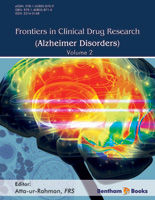
Photo from archive.org
Brain aging and aging-related neurodegenerative disorders are posing a significant challenge for health systems worldwide. To date, most of the therapeutic efforts aimed at counteracting dementia-related behavioral and cognitive impairment… Click to show full abstract
Brain aging and aging-related neurodegenerative disorders are posing a significant challenge for health systems worldwide. To date, most of the therapeutic efforts aimed at counteracting dementia-related behavioral and cognitive impairment have been focused on addressing putative determinants of the disease, such as b-amyloid or tau. In contrast, relatively little attention has been paid to pharmacological interventions aimed at restoring or promoting the synaptic plasticity of the aging brain. The review will explore and discuss the most recent molecular, structural/functional, and behavioral evidence that supports the use of non-pharmacological approaches as well as cognitive-enhancing drugs to counteract brain aging and early-stage dementia.
Journal Title: Current Alzheimer research
Year Published: 2020
Link to full text (if available)
Share on Social Media: Sign Up to like & get
recommendations!